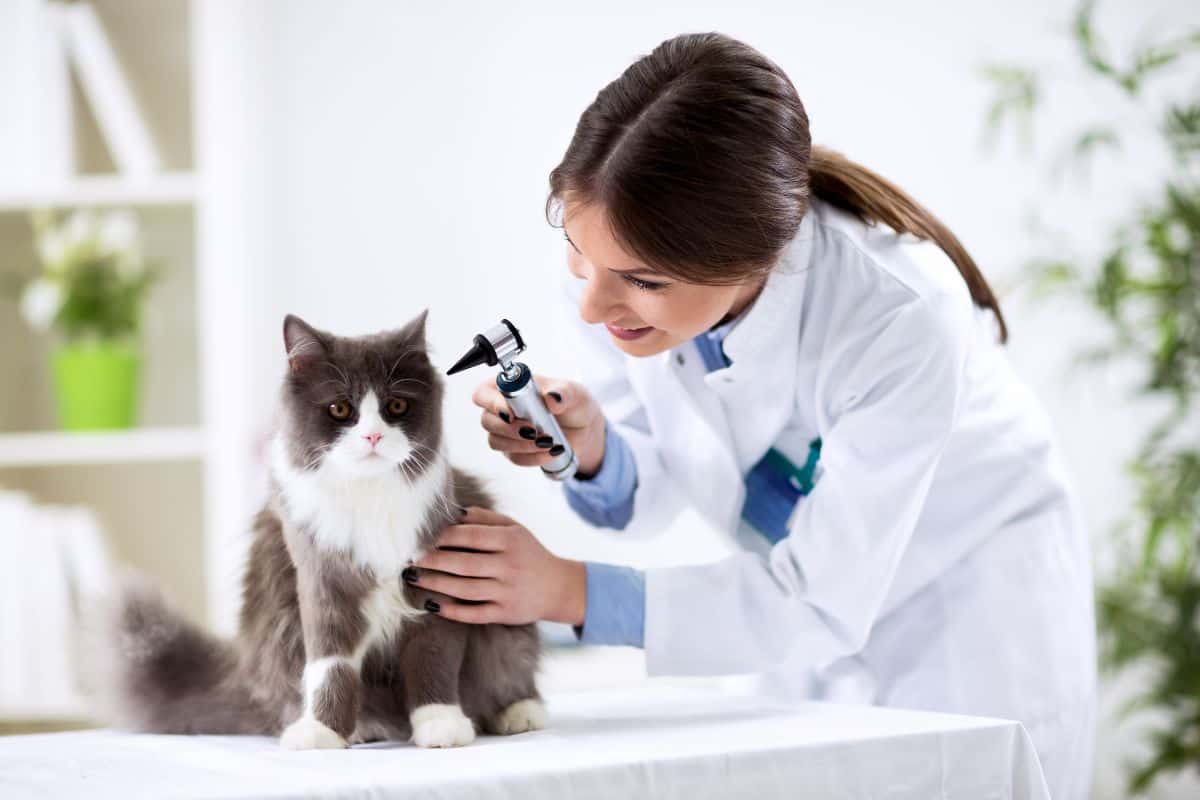Vaccination Guidelines From Your Trusted Veterinarian
Vaccination standards provided by your trusted veterinarian play a vital function in securing your family pet's health and health. Core vaccines are essential for all animals, while non-core vaccinations can be customized to details way of livings and ecological exposures. Understanding the nuances of inoculation routines, which start as early as six to eight weeks, is important for optimum protection. In addition, attending to usual misconceptions surrounding vaccinations can additionally improve family pet proprietors' confidence in these safety nets. As we explore these vital elements, it becomes significantly clear why regular examinations with your vet are indispensable for informed decision-making.

Importance of Inoculations
Inoculations play an essential function in securing pet dogs against a series of avoidable diseases. By stimulating the immune system to identify and fight specific virus, vaccinations significantly reduce the incidence of transmittable conditions that can influence a pet's health and long life. Not only do vaccinations protect specific animals, but they also add to herd resistance, thus minimizing the total prevalence of conditions in the animal populace.
Timely vaccinations aid to reduce the spread of conditions such as rabies, parvovirus, and distemper, which can have extreme consequences for both pets and human beings. Furthermore, inoculations are typically a requirement for boarding facilities, grooming solutions, and pet dog parks, making them necessary for those that wish to socialize their animals.

Core Vaccinations for Animals
While the specific vaccination needs of pets can differ based on specific variables, core vaccines are widely advised to shield against one of the most serious and usual diseases (Pet Vaccinations). Core vaccinations are those regarded vital for all pet dogs, no matter of their way of living or geographic location, as they safeguard versus potentially deadly and extremely transmittable illnesses
For dogs, the core vaccines include those for canine distemper, parvovirus, adenovirus (liver disease), and rabies. Canine distemper is a viral illness that influences the respiratory system, stomach, and nerves. Parvovirus is understood for triggering severe gastrointestinal illness, specifically in young puppies. Adenovirus can lead to liver disease, while rabies is a zoonotic disease that presents a risk to both people and family pets.
In cats, core vaccines incorporate feline panleukopenia, feline calicivirus, feline herpesvirus (rhinotracheitis), and rabies. Feline panleukopenia is a highly transmittable viral illness that influences the body immune system and intestines. Calicivirus and herpesvirus are significant contributors to upper breathing infections in felines, while rabies remains an important worry for public health.
Talk to your vet to ensure your pet dogs get their core vaccinations on schedule.
Non-Core Vaccines Explained
Non-core injections are customized to deal with details dangers connected with a pet's lifestyle, exposure, and setting to particular illness. Unlike core vaccinations, which are widely recommended for all animals, non-core vaccinations are considered based on specific situations. These vaccinations are specifically important for pets that might come across special pathogens as a result of their geographical place, travel practices, or tasks.
Instances of non-core vaccines include those for Bordetella bronchiseptica, which is connected to kennel coughing, and Lyme illness, brought on by ticks. Family pets that regularly engage with various other animals, such as those in boarding facilities, canine parks, or brushing environments, may take advantage of Bordetella vaccination. If you live in a location where Lyme condition is prevalent, vaccinating against this condition can be a prudent selection for outdoor-loving canines.
Other non-core vaccinations may consist of those for leptospirosis, canine influenza, and feline leukemia, depending upon the certain threat aspects present. It is important to have a complete conversation with your vet about your pet dog's way of living and the possible need for these injections, making sure a tailored inoculation strategy that finest protects your furry close friend.
Vaccination Arrange Introduction

As pet dogs develop, it is necessary to adhere to the recommended booster inoculations. Emergency Vet. For grown-up pets, core vaccinations are typically given each to 3 years, depending upon the details vaccination and local policies. Non-core vaccines might be recommended based on way of living aspects and local disease frequency, demanding a customized technique
Regular veterinary exams are vital for upgrading inoculation timetables. Your vet can offer assistance on the most proper booster shots for your pet dog, factoring site here in age, health status, and ecological risks. By staying positive and informed, pet dog proprietors can guarantee their furry buddies receive timely and efficient vaccinations, thereby protecting their wellness and well-being throughout their lives.
Usual Myths About Injections
Misunderstandings regarding family pet vaccinations can bring about complication and hesitation among pet owners concerning the booster shot process. One widespread misconception is that injections are unnecessary for interior animals. While it's true that indoor pet dogs deal with reduced threats, they are not completely immune to conditions, as microorganisms can be presented via various ways, including human garments and various other pets.
An additional misunderstanding is that vaccines can cause the illness they aim to stop. Actually, the majority of vaccinations include suspended or attenuated virus, which can not cause illness in healthy pets. Some pet dog proprietors also believe that their animals must not be vaccinated if they look at this site are currently healthy and balanced; however, vaccinations are a positive action that assists avoid the beginning of illness.
Additionally, several pet proprietors fear that injections will certainly result in lasting health and wellness difficulties. While adverse effects can occur, they are typically mild and short-term. The benefits of inoculation-- safeguarding pets from potentially deadly illness-- much surpass the threats. Comprehending these typical misconceptions is important for liable pet dog possession and ensuring the health and wellness of your hairy companions. Constantly consult your vet for exact info customized to your family pet's certain needs.
Final Thought
In recap, adherence to vaccination guidelines is important for ensuring the health and wellness and durability of family pets. Resolving typical misconceptions bordering vaccinations additionally enhances the relevance of notified decision-making in pet care.
Not just do vaccinations protect private about his pets, yet they additionally add to herd resistance, thereby reducing the overall occurrence of illness in the pet dog populace.
Misconceptions regarding pet dog vaccinations can lead to confusion and reluctance amongst pet proprietors concerning the immunization procedure. While it's real that interior animals face lower risks, they are not completely immune to diseases, as microorganisms can be introduced through different means, including human apparel and other pet dogs.
Some animal owners additionally think that their animals need to not be immunized if they are already healthy; however, vaccinations are a proactive procedure that assists stop the onset of illness.
The benefits of vaccination-- securing pet dogs from possibly serious illness-- much outweigh the risks.